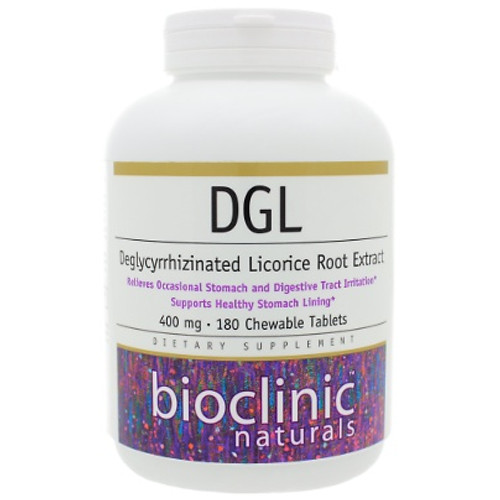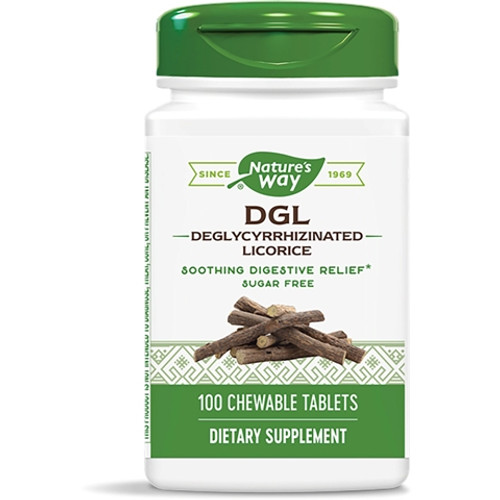Benefits
- DGL chewable tablets is the form associated with the greatest clinical efficacy, as it allows for licorice to be released in the stomach and dispersed/absorbed by the gastric mucosa
- Provides 400 mg DGL per tablet, the clinically effective dosage
- Deglycyrrhizination prevents adverse effects associated with licorice consumption
- Pleasant tasting tablets for better compliance
- Suitable for vegetarians/vegans
Feature Summary
Deglycyrrhizinated licorice, or DGL, has been used clinically for decades, primarily for the treatment of peptic ulcers.1 Licorice has been shown to inhibit several inflammatory enzymes, including both cyclooxygenase-2 (COX-2) and 5-lipoxygenase (5-LOX), decreasing the production of several potent inflammatory compounds, including prostaglandin E2, thromboxane B2, and leukotriene B4. Importantly, this inhibition is not due to glycyrrhizic acid, the component of licorice which has been removed in DGL, and which is associated with mineralocorticoid excess and hypertension.2 Another component of licorice, glabridin, has been shown to prevent lipopolysaccharide (LPS) induced production of inflammatory compounds, including nitric oxide and interleukin-1 beta, whereas glycyrrhizic acid has no effect.
Clinically, DGL has been shown to have comparable efficacy to cimetidine for both the healing and prevention of ulcer recurrences.3 Additionally, extracts of licorice have been shown to inhibit the adhesion of H. pylori to gastric mucosa, as well as the growth of antibiotic resistant strains, suggesting multiple mechanisms of action for its anti-ulcer benefit.4, 5 The use of chewable tablets appears necessary for DGL’s efficacy, as it allows for distribution and absorption by the gastric mucosa.3
References
- Turpie AG, et al. Clinical trial of deglydyrrhizinized liquorice in gastric ulcer. Gut. 1969 Apr;10(4):299-302.
- Chandrasekaran CV, et al. Dual inhibitory effect of Glycyrrhiza glabra (GutGard™) on COX and LOX products. Phytomedicine. 2011 Feb 15;18(4):278-84.
- Morgan AG, et al. Comparison between cimetidine and Caved-S in the treatment of gastric ulceration, and subsequent maintenance therapy. Gut. 1982 Jun;23(6):545-51.
- Wittschier N, et al. Aqueous extracts and polysaccharides from liquorice roots (Glycyrrhiza glabra L.) inhibit adhesion of Helicobacter pylori to human gastric mucosa. J Ethnopharmacol. 2009 Sep 7;125(2):218-23.
- Fukai T, et al. Anti-Helicobacter pylori flavonoids from licorice extract. Life Sci. 2002 71:1449-63.












